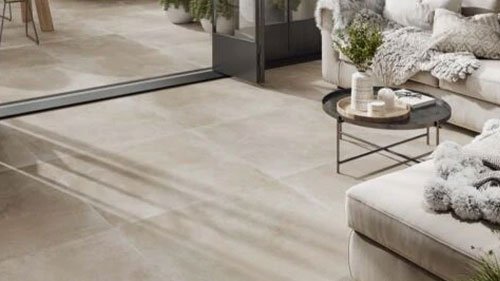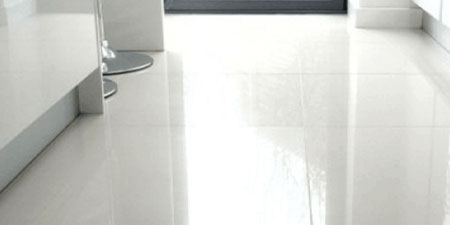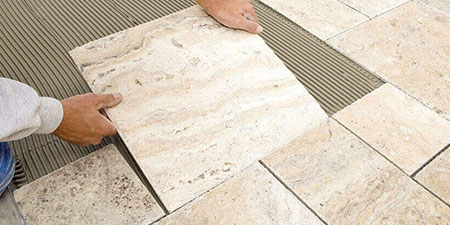
Ceramic Tiles
Ceramic Tiles
Ceramic tiles are a mixture of clays and other natural materials, such as sand, quartz and water. They are primarily used in houses, restaurants, offices, shops, and so on, as bathroom wall and kitchen floor surfaces. They are easy to fit, easy to clean, easy to maintain and are available at reasonable prices

Pros and Cons of Ceramic Tile Outdoors

Pros:
- Less expensive than porcelain tiles, averaging from $1 to $8 per square foot;
- Lighter and easier to cut and install than porcelain tiles;
- Wider range of colours and styles available.
Cons:
- More crack-prone than porcelain tiles;
- Less wear resistant than porcelain
- More porous, making them more vulnerable to water seeping through, and to dirt staining.
Porcelain and Ceramic Tile: The Basics
Porcelain and ceramic tiles can both be used for outdoor surfaces like decks and patios. They’re both hard, reasonably durable flooring materials made of clay moulded into thin sheets, then dried in a kiln.
The differences come down to composition and manufacturing. Porcelain tiles are made of a finer, more refined clay. As they’re formed, porcelain tile clay is pressed harder into its desired shape, leading to denser, heavier tiles than the ceramic variety. Porcelain tiles are also fired at higher kiln temperatures, leading to harder, stronger and more scratch-resistant tiles.
Ceramic tiles are less dense and more porous. They can be glazed for increased sheen and protection, or remain unglazed for a rougher, more natural feel. Their density, compared to porcelain tiles, makes them less water and stain resistant, particularly if they’re unglazed.









